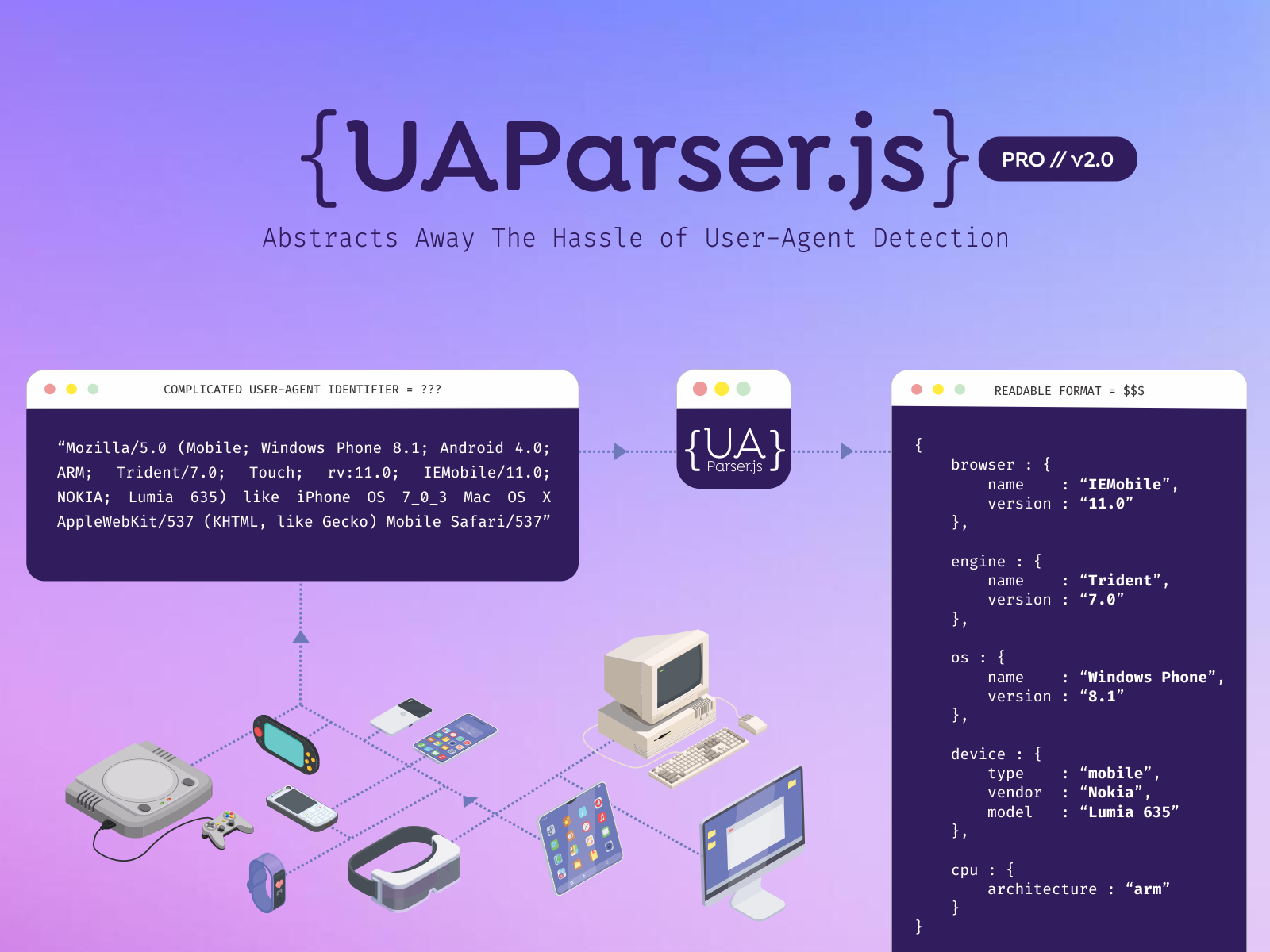Device Detection
- ua-parser-js:
ua-parser-js provides a good level of detail in device detection, including browser name, version, and operating system. It strikes a balance between performance and detail, making it a versatile option for applications that require accurate parsing without excessive overhead.
- platform:
platform offers basic device detection capabilities, focusing primarily on identifying the platform type (e.g., browser, OS). It does not provide extensive details about the device itself, making it suitable for simpler use cases where only high-level information is needed.
- device-detector-js:
device-detector-js excels in providing detailed device detection, including device type (mobile, tablet, desktop), brand, model, and capabilities. It supports a wide array of devices, making it a great choice for applications that need to adapt their UI or functionality based on the specific device being used.
Performance
- ua-parser-js:
ua-parser-js is optimized for performance and is known for its fast parsing capabilities. It is designed to handle user agent strings efficiently, making it suitable for applications that require quick responses.
- platform:
platform is lightweight and designed for speed, making it an excellent choice for applications where performance is critical. Its minimalistic approach ensures quick detection without unnecessary overhead.
- device-detector-js:
device-detector-js is relatively performant but may have a larger footprint due to its comprehensive data set. It is optimized for speed, but the extensive data it processes can impact performance in high-traffic applications if not managed properly.
Extensibility
- ua-parser-js:
ua-parser-js offers some extensibility features, allowing developers to customize parsing rules and add new user agent strings. This can be beneficial for applications that need to adapt to evolving user agent formats.
- platform:
platform is not highly extensible, focusing instead on providing a straightforward API for basic platform detection. It is best for projects where extensibility is not a primary concern.
- device-detector-js:
device-detector-js is extensible, allowing developers to add custom device definitions and modify existing ones. This flexibility makes it suitable for applications that may need to adapt to new devices or specific requirements over time.
Ease of Use
- ua-parser-js:
ua-parser-js strikes a balance between ease of use and functionality. Its API is straightforward, and it provides clear documentation, making it accessible for developers of all skill levels.
- platform:
platform is very easy to use, with a simple API that allows developers to quickly implement device detection without much overhead. This makes it ideal for projects that need rapid integration.
- device-detector-js:
device-detector-js has a more complex API due to its extensive features, which may require a steeper learning curve for new users. However, its comprehensive documentation helps mitigate this challenge.
Community and Support
- ua-parser-js:
ua-parser-js benefits from a robust community and regular updates, providing good support and resources for developers. Its popularity ensures that it is well-maintained and frequently improved.
- platform:
platform has a smaller community compared to the others, which may result in less frequent updates and community support. However, it is still reliable for basic use cases.
- device-detector-js:
device-detector-js has a strong community and active maintenance, ensuring that it stays updated with the latest device information and user agent formats. This support is crucial for long-term projects.












